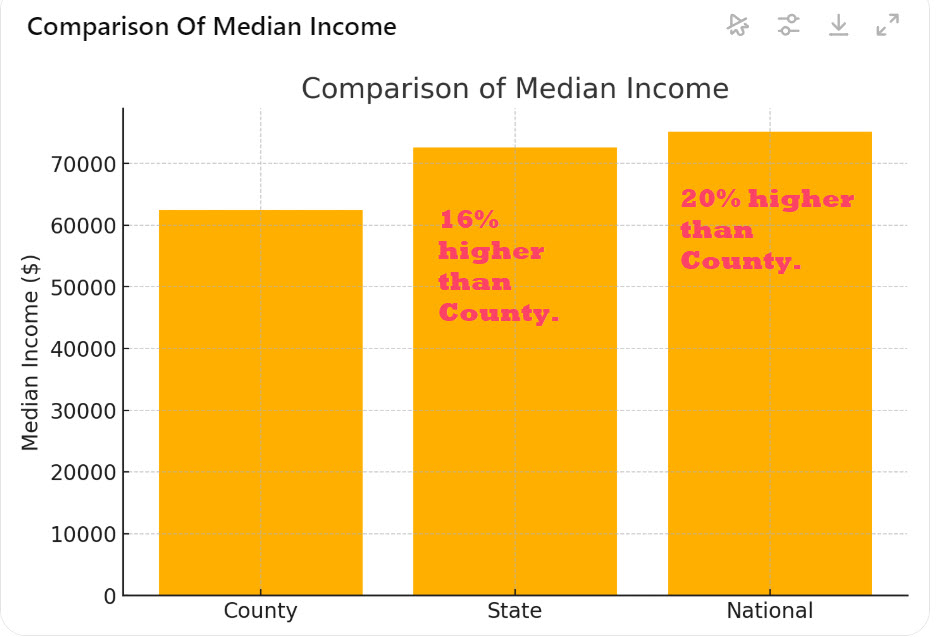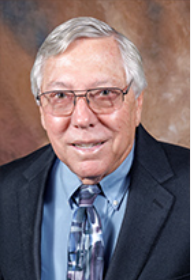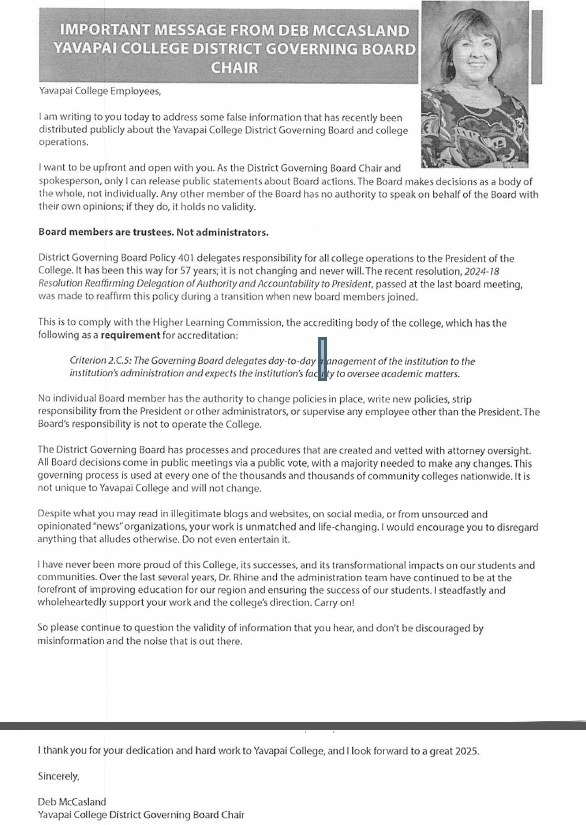Despite the significant income gap, poverty level not quite as bad as expected
 At the January 28, 2025, meeting of the Yavapai Community College District Governing Board, Community College economist and data analytics expert Ryan Jones presented an analysis of income levels and the rate of poverty in Yavapai County.
At the January 28, 2025, meeting of the Yavapai Community College District Governing Board, Community College economist and data analytics expert Ryan Jones presented an analysis of income levels and the rate of poverty in Yavapai County.
Jones reported that the county’s median income is significantly lower than state and national figures. He noted that Yavapai County workers median income is $62,430. The state median income is $72,581, which is 16% above that of Yavapai County. , Nationally, the median income is $75,149, which is 20% above that of Yavapai County workers.
Examining poverty levels, Jones expressed some surprise that the county’s poverty rate, at approximately 12%, was not higher given the lower wages. However, he cautioned that this figure likely does not fully reflect the county’s high cost of living. If adjusted for local living expenses, the poverty rate would likely be higher, he said.

 On January 15, the Regional Economic Development Center (REDC) at Yavapai Community College announced a training partnership with the United States Patent and Trademark Office (USPTO. It says in a press release that it is “the first and only college in the nation” to collaborate with the USPTO on such an eight week training program.
On January 15, the Regional Economic Development Center (REDC) at Yavapai Community College announced a training partnership with the United States Patent and Trademark Office (USPTO. It says in a press release that it is “the first and only college in the nation” to collaborate with the USPTO on such an eight week training program.
 At the start of the January 28 all-day workshop, Yavapai Community College District Governing Board Chair Deb McCasland announced she was holding an “order” restricting Board members to just two minutes of questioning per presenter. She justified the limit by stating it was necessary “so everyone could participate.” The Board consists of five representatives.
At the start of the January 28 all-day workshop, Yavapai Community College District Governing Board Chair Deb McCasland announced she was holding an “order” restricting Board members to just two minutes of questioning per presenter. She justified the limit by stating it was necessary “so everyone could participate.” The Board consists of five representatives. Dr. Rodolfo Martinez Morales, the University of Arizona’s Extension Director for Santa Cruz County, will discuss Regenerative Agriculture and its potential to increase sustainability as part of the Osher Lifelong Learning Institute’s (OLLI) free “Munch & Learn” program, Thursday January 30, from 12:30 to 1:45 p.m., on Yavapai Community College’s Verde Valley Campus. The program is free and open to the public. The lecture will be held in Room M-137. OLLI asks that you preregister by calling 928-649-4275.
Dr. Rodolfo Martinez Morales, the University of Arizona’s Extension Director for Santa Cruz County, will discuss Regenerative Agriculture and its potential to increase sustainability as part of the Osher Lifelong Learning Institute’s (OLLI) free “Munch & Learn” program, Thursday January 30, from 12:30 to 1:45 p.m., on Yavapai Community College’s Verde Valley Campus. The program is free and open to the public. The lecture will be held in Room M-137. OLLI asks that you preregister by calling 928-649-4275. The Yavapai Community College District Governing Board will hold a workshop meeting on Tuesday, January 28, 2025, at the Rock House on the Prescott Campus. The meeting will start at 9 a.m. and is expected to conclude by 4 p.m. A live stream of the meeting will normally be available on YouTube at https://www.youtube.com/user/YavapaiCollege.
The Yavapai Community College District Governing Board will hold a workshop meeting on Tuesday, January 28, 2025, at the Rock House on the Prescott Campus. The meeting will start at 9 a.m. and is expected to conclude by 4 p.m. A live stream of the meeting will normally be available on YouTube at https://www.youtube.com/user/YavapaiCollege. Deb McCasland was re-elected as the Yavapai Community College District Governing Board Chair by a 3-2 vote, defeating Third District Representative Toby Payne. In the same meeting, District 5 Representative Steve Bracety was chosen as Board Secretary. The election occurred during the District Governing Board’s workshop January 14.
Deb McCasland was re-elected as the Yavapai Community College District Governing Board Chair by a 3-2 vote, defeating Third District Representative Toby Payne. In the same meeting, District 5 Representative Steve Bracety was chosen as Board Secretary. The election occurred during the District Governing Board’s workshop January 14.

